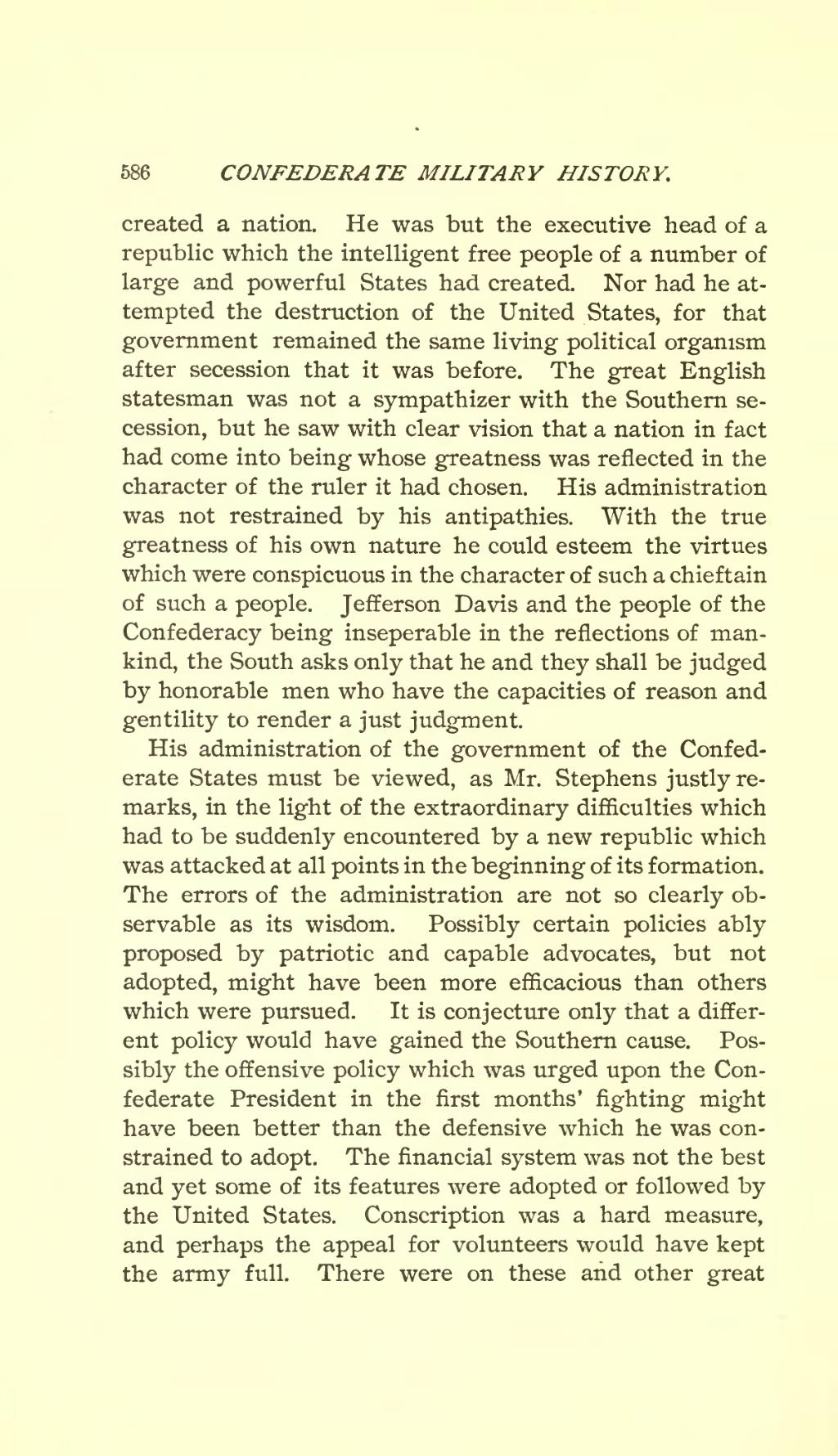created a nation. He was but the executive head of a republic which the intelligent free people of a number of large and powerful States had created. Nor had he at tempted the destruction of the United States, for that government remained the same living political organism after secession that it was before. The great English statesman was not a sympathizer with the Southern secession, but he saw with clear vision that a nation in fact had come into being whose greatness was reflected in the character of the ruler it had chosen. His administration was not restrained by his antipathies. With the true greatness of his own nature he could esteem the virtues which were conspicuous in the character of such a chieftain of such a people. Jefferson Davis and the people of the Confederacy being inseperable in the reflections of mankind, the South asks only that he and they shall be judged by honorable men who have the capacities of reason and gentility to render a just judgment.
His administration of the government of the Confederate States must be viewed, as Mr. Stephens justly remarks, in the light of the extraordinary difficulties which had to be suddenly encountered by a new republic which was attacked at all points in the beginning of its formation. The errors of the administration are not so clearly observable as its wisdom. Possibly certain policies ably proposed by patriotic and capable advocates, but not adopted, might have been more efficacious than others which were pursued. It is conjecture only that a different policy would have gained the Southern cause. Possibly the offensive policy which was urged upon the Confederate President in the first months fighting might have been better than the defensive which he was constrained to adopt. The financial system was not the best and yet some of its features were adopted or followed by the United States. Conscription was a hard measure, and perhaps the appeal for volunteers would have kept the army full. There were on these and other great
